



Namibia is a country of great diversity. This is not a ground-breaking observation. We have diverse cultures, wildlife, geography, geology and even histories.
But it is to our prolific birdlife you must turn for some seriously astonishing diversity: from the smallest dune lark to the largest flightless bird, the ostrich; from the bedecked beauty of the carmine bee eater to the just-plucked comedy of the lappet-faced vulture. Together with non-profits like Vultures Namibia, we intend to play our role in making sure it remains that way.
Some of Namibia's treasured wildlife species are consistent chart-toppers on the world's endangered and critically endangered species list. We're looking forlornly at you Messrs black and white rhino, African elephant, African wild dog, sea lion, pangolin et al.
In the wings, so to speak, hoping to avoid the limelight of endangerdom, a group of nervous Nellies minds their fate, hoping to outwit shrinking odds of survival. The lappet-faced vulture is one of them. A unique bird that, like everything in Namibia, plays a vital role in a delicate ecosystem 20 million years in the fine-tuning.
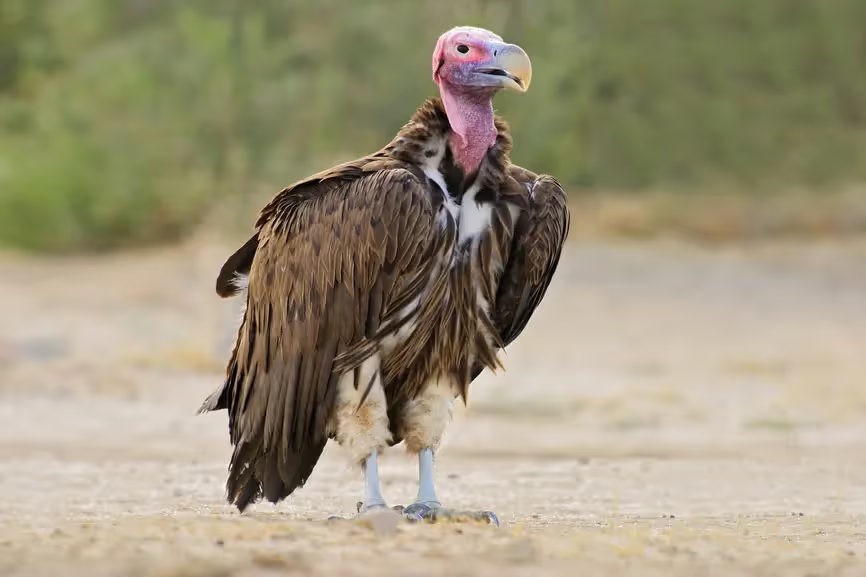
This is one big bird. Hailing from the Old World (meaning he can't smell), the lappet-faced vulture weighs in at 13kg (30lbs), stands 1.3m (4.5ft) tall and spreads its wings an astounding 3m (10ft) wide.
A proud member of the Ugly 5 - along with the warthog, hyena, wildebeest and marabou stork - the lappet-faced vulture is as distinctive as it is rare. In fact of the six vulture species that have patrolled these skies for aeons, two are now extinct (Egyptian and Cape), two are endangered (white-headed and white-backed) and the remaining two (hooded and lappet-faced) are on the vulnerable list.
In Namibia you'll find the white-backed vulture in the northeast while the lappet-faced occupies the southern region. This is where you'll find volunteers from Vultures Namibia doing their thing to protect this important bird. As they have been doing since 1991 - the year NTS started operating. Originally starting out in the Namib Naukluft National Park they have expanded their reach into the NamibRand Nature Reserve and the surrounding commercial farms.
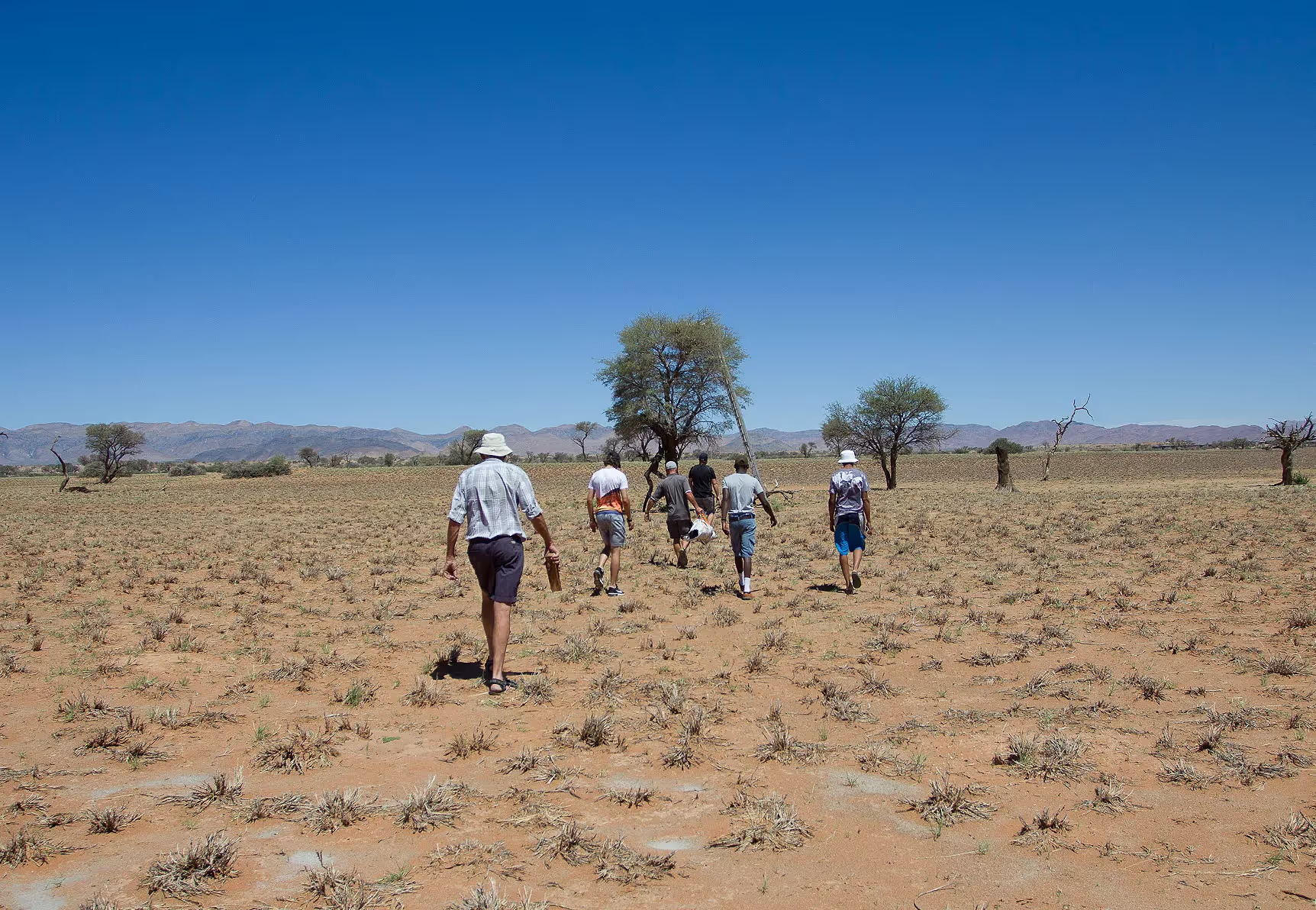
So how has the lappet-faced vulture ended up on the vulnerable list? What does Vultures Namibia do? How is NTS helping get it off that list?
The sole cause of the lappet-faced vulture's declining numbers is of course us humans. Unchecked habitat loss, declining food sources and poisoning are pushing this highly specialised bird into obscurity. In 2013, for example, 600 lappet-faced vultures died from a single poisoning incident.
Commercial and small-scale subsistence farmers poison small predators like gennets, jackals and karakals to protect their livestock. Alas for our olfactorily-challenged friend, the poisoned carcass is just another fine feast. And these guys aren't exactly rabbits: vultures pair for life and, at one chick a year for three or four years only, they're not going to reverse their declining numbers any time soon.
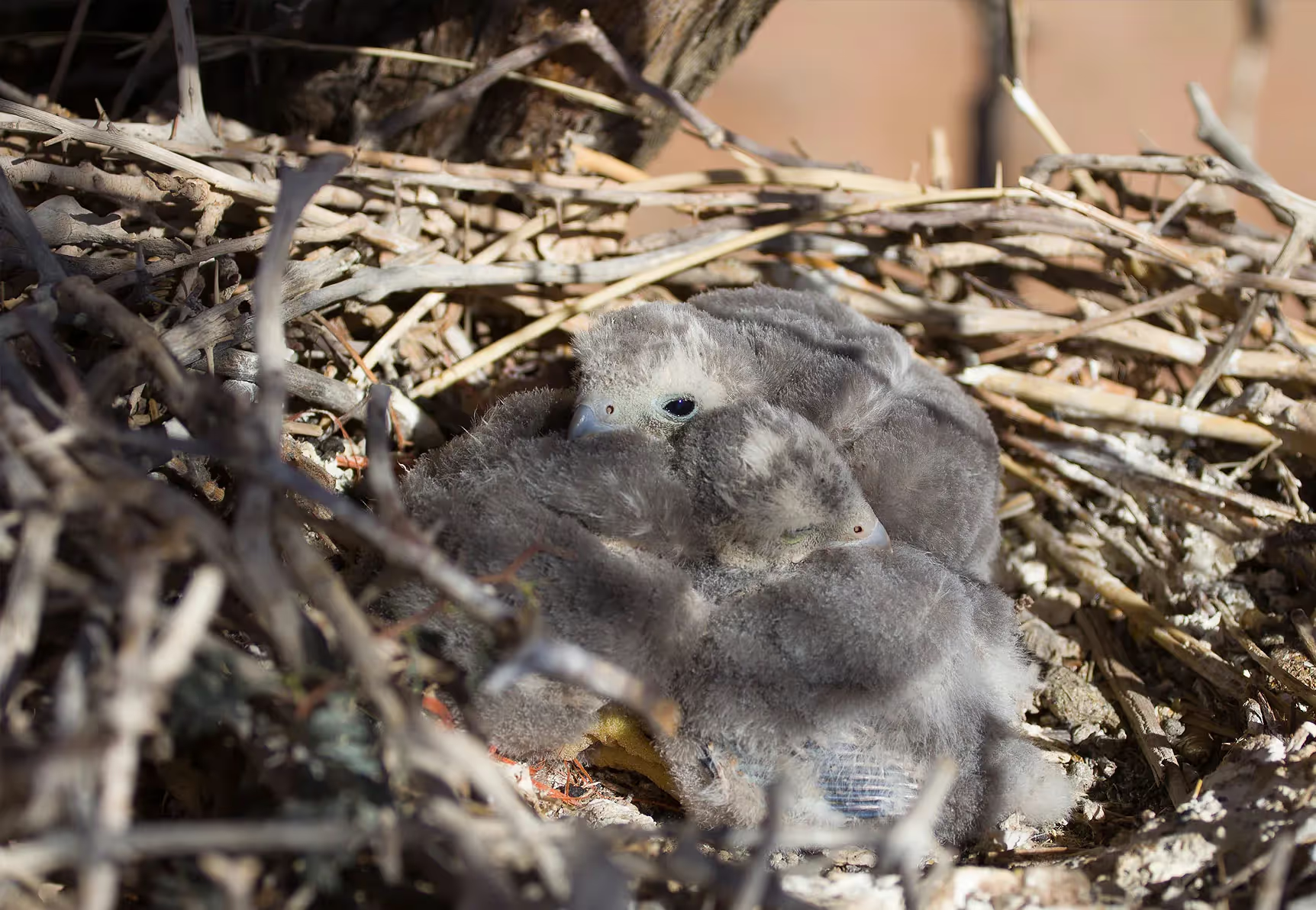
Here is where Vultures Namibia lends a helping hand (or eye). It starts with air surveys to locate nests, then heading out into the field they find the nests spotted. Since vultures have no sense of smell (lucky for them considering their diets) this makes it possible for them to be handled while most other bird species cannot be handled in the same way. If the nests are inhabited, the fledglings of approximately 40 to 60 days old are ringed, tagged and blood samples are collected to determine the sex of the birds. Later at around 100 days old, certain nests are revisited to apply GPS trackers, which then download data ever hour so that the movements of the birds can be tracked. Knowing how and where they move, allows them to be protected. Injured birds are rehabilitated in all seasons and along with data from neighbouring countries, they are able to ensure the success of the species.
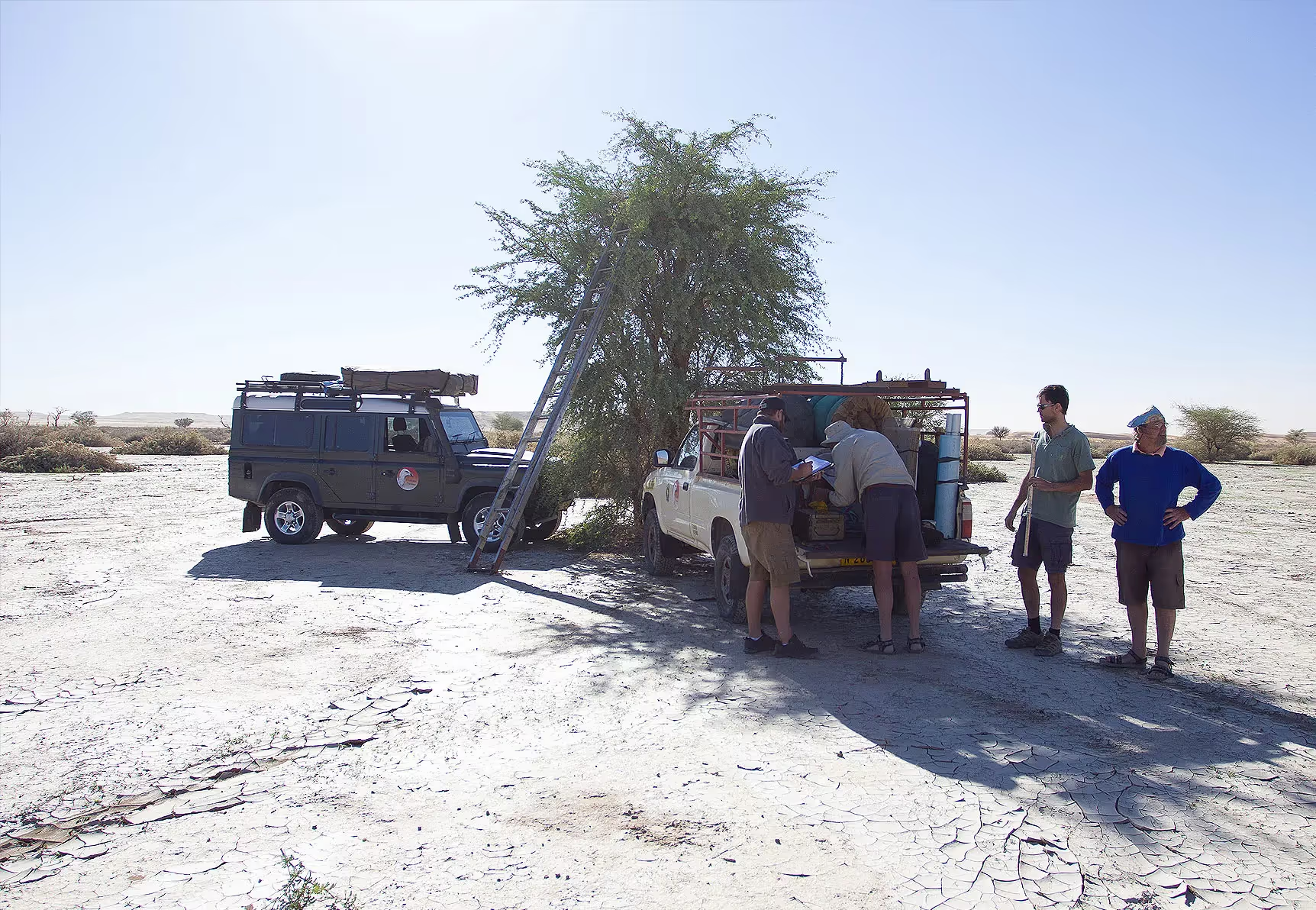
Vultures Namibia works hand in hand with local farming communities to promote vulture conservation and also works with initiatives such as the Birds of Prey Program (BOPP) and other organisations in raptor conservation. Most recently they have even started working with cheetah researchers, having noticed that vultures often follow the movements of cheetah to feed on recent kills.
Vultures Namibia is a small organisation, too small to be registered as a charity and is run entirely by volunteers. With little outside funding, and the desperate importance of the work they do, this is why we have decided to get involved.
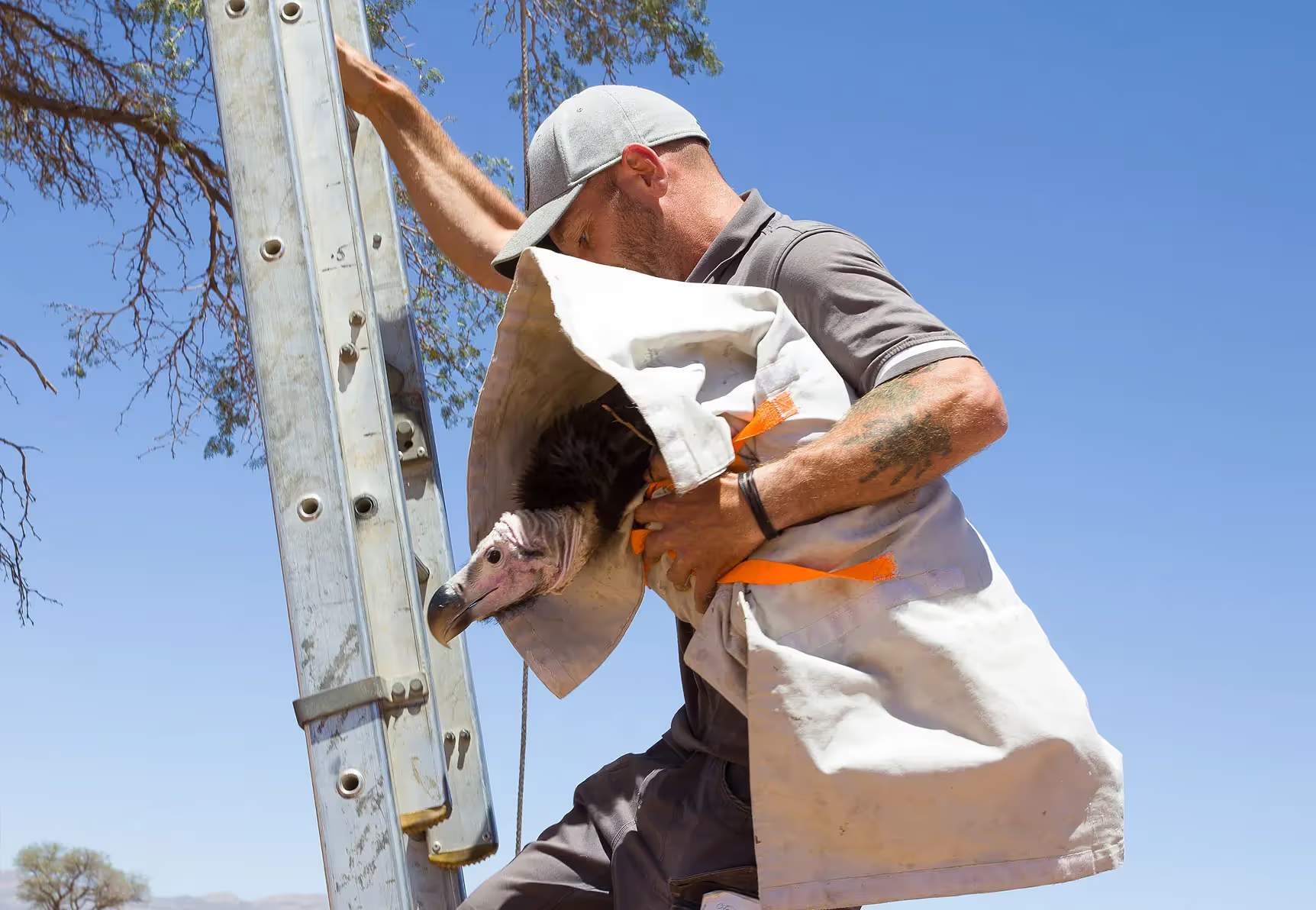
NTS has adopted five vultures (namely: Bach, Mozart, Chopin, Beethoven and Oscar) supporting the initiative by sponsoring GPS trackers. Allowing more birds to be monitored allows the volunteers to be more involved. More involvement means greater change and that's music to our ears and a symphony for Vultures Namibia. If you’d like to read up more about Vultures Namibia or to get involved, please click on the following link: http://www.vultures-namibia.com/
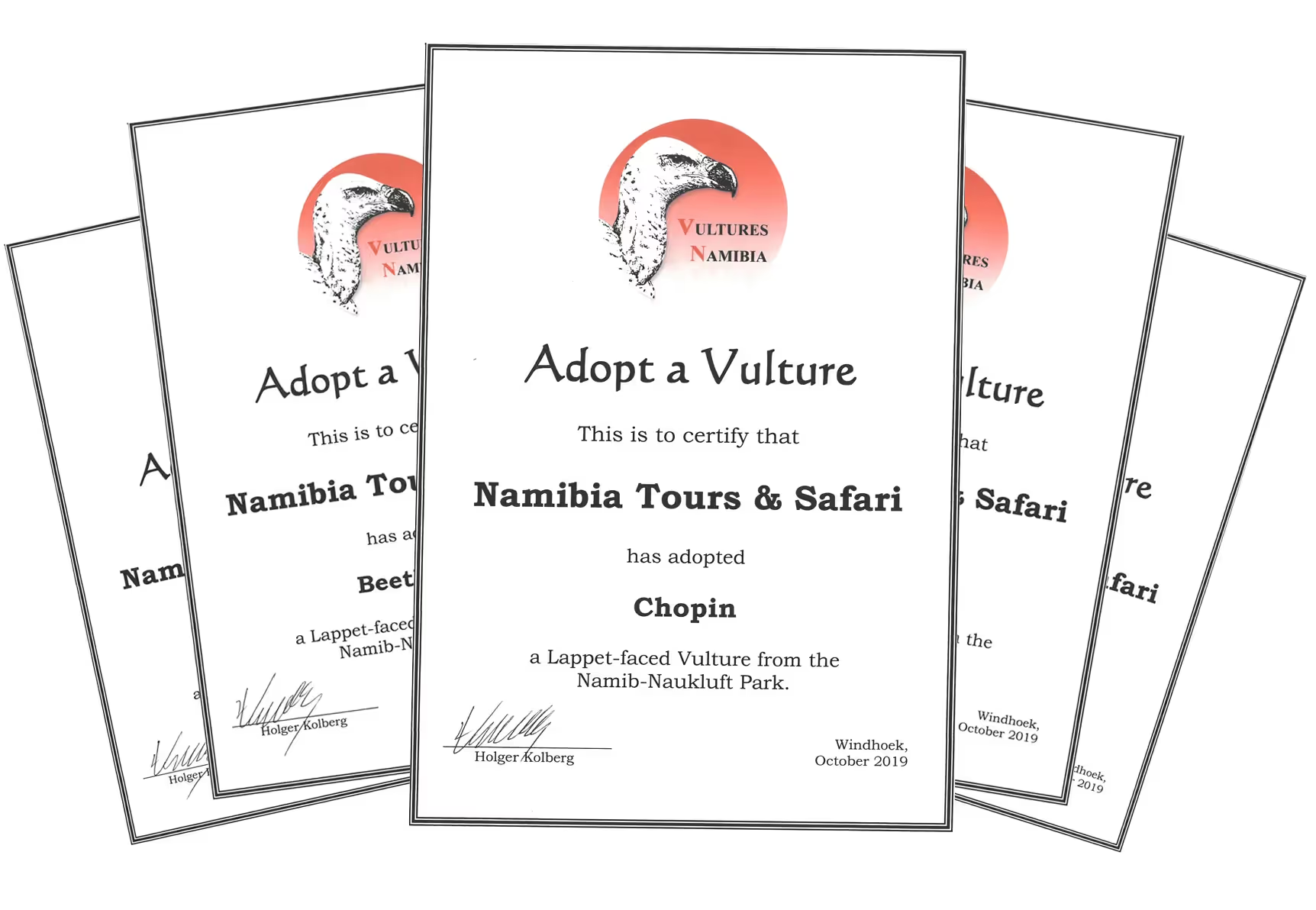
According to C.S Lewis, “You can’t go back and change the beginning, but you can start where you are and change the ending”. We want to be a part of making sure that this incredible species not only survives but thrives and you can be a part of this too.



"A dream come true"
We had the most amazing family holiday, everything worked so perfectly, the arrangements and accommodation was spectacular!
"Unforgettable trip to Namibia – Thank you Namibia Tours & Safaris!"
We are a group of four from Romania and spent 3 unforgettable weeks in Namibia. We can't recommend them enough, and for any future travels in Namibia or other parts of Africa, we will definitely use their services again.
"We had a great experience"
From the time we put the key in the ignition till we boarded the plane in Windhoek nothing went wrong.
"Unforgettable bird photography trip in Namibia"
It was a fantastic experience, everything was very well organised, went smooth and according to expectations. It was our first self drive in Africa and it was a great, unforgettable time.